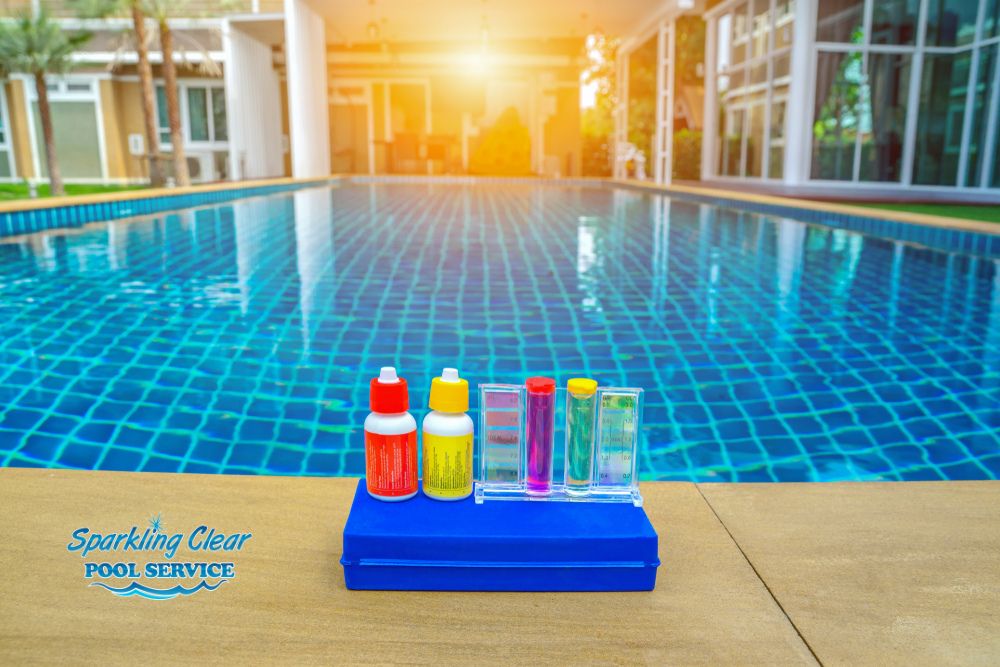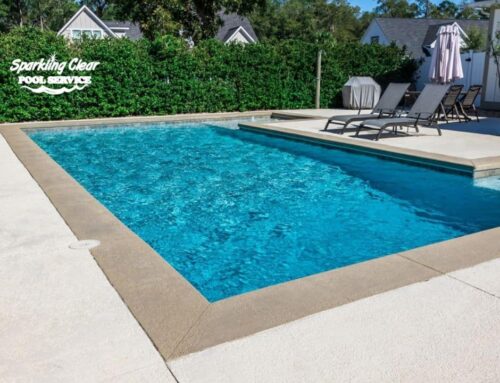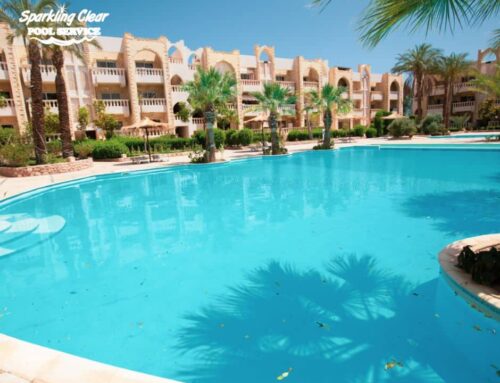As the weather warms up and the swimming season approaches, it’s time to get ready for the refreshing embrace of your swimming pool. But before diving in, it’s crucial to ensure your pool is pristine. That’s where the magic of pool chemicals comes in. This blog will help you learn the essential chemicals to maintain a crystal-clear and safe pool. Get ready to unleash the secrets to a sparkling, worry-free swimming season.
The Main Chemicals Needed for Pool Maintenance
Maintaining a swimming pool involves carefully balancing various chemicals to ensure the water remains clean, clear, and safe for swimmers. Here’s an overview of the main chemicals needed for pool maintenance:
- Chlorine: Chlorine is perhaps the most critical chemical for pool maintenance. It serves as a disinfectant, effectively killing bacteria, algae, and other harmful contaminants that may be present in the water. Chlorine can be added to the pool in various forms, including liquid, granular, or tablet.
- pH Adjusters: The pH level of pool water refers to its acidity or alkalinity. Maintaining the correct pH balance is crucial for several reasons. If the pH is too high or too low, it can lead to skin and eye irritation, pool equipment corrosion, and reduced chlorine effectiveness. Common pH adjusters include sodium bicarbonate (raising pH) and muriatic acid (lowering pH).
- Algaecides: Algae can quickly take hold in a pool, turning the water green and cloudy. Algaecides are chemical treatments designed to prevent algae growth and kill existing algae. Regular use of algaecides can help keep the pool water clear and algae-free.
- Calcium Hardness Increaser or Decreaser: Maintaining the right amount of calcium in your pool water is super important. If there’s too much, it can make a scale that messes up your pool surfaces and gear. Too little, and it can cause corrosion. So, we use stuff to either increase or decrease the calcium levels to keep things balanced and ensure your pool lasts a long time.
- Stabilizer (Cyanuric Acid): Sunlight can rapidly degrade chlorine, reducing its effectiveness as a disinfectant. Stabilizers, such as cyanuric acid, help protect chlorine from degradation, allowing it to remain active in the water for extended periods.
- Clarifier: Pool water can sometimes become cloudy due to suspended particles that are too small to filter out. Clarifiers work by causing these particles to clump together, making it easier for the pool filter to remove them and restoring water clarity.
- Shock Treatment: Shock treatment involves adding a substantial dose of chlorine to the pool to rapidly raise chlorine levels and eliminate bacteria, algae, and other organic contaminants. It is typically performed weekly or bi-weekly to maintain water clarity and hygiene.
- Test Kit: Regular pool water testing ensures proper chemical balance. Test kits measure various parameters, including chlorine levels, pH, alkalinity, and calcium hardness. By regularly monitoring these parameters, pool owners can decide which chemicals to add to maintain optimal water quality.
Proper pool maintenance requires careful attention to chemical balance. Pool owners can enjoy clean, clear, and safe water throughout the swimming season by regularly testing and adjusting chlorine levels, pH, alkalinity, calcium hardness, and other parameters.
Get Professional Help for Chemical Treatments from Sparkling Clear Pool Service
Once you have get your pool ready, its crucial to maintain it on regular basis, and for proper maintenance it’s important to ensure that you have the essential chemicals ready. Our team of experts at Sparkling Clear Pool Service can provide personalized advice and guidance to help you sustain a clean, safe, and enjoyable swimming environment all summer. Contact us today to learn more about regular pool maintenance and chemical treatments. Call us at (214) 361-0255 to keep your pool sparkling clear and ready for endless summer fun.






